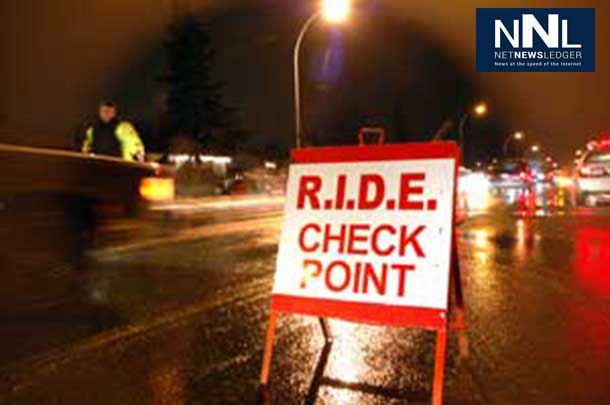THUNDER BAY – LIVING – New Year’s Day evokes visions of celebrations and fresh beginnings, but unfortunately, the holiday has a more somber side when it comes to alcohol and crashes. Jan. 1 is the deadliest day in the United States on average for alcohol-related crashes involving a motor vehicle, pedestrian or bicyclist, a new Insurance Institute for Highway Safety analysis shows.
Using the five most recent years of available fatal crash data, IIHS researchers found that every New Year’s Day, an average of 70 lives were lost in crashes in which at least one driver, pedestrian or bicyclist had a blood alcohol concentration (BAC) of 0.08 percent or higher. Sixty-one percent of the average of 113 crash deaths on Jan. 1 were due to alcohol impairment. That is nearly double the overall impairment rate of 35 percent during the 2011-15 period.
January 1 also is the deadliest day for occupants of cars, minivans, pickup trucks and SUVs. Across the five-year study period, an average of 83 lives were lost in passenger vehicle crashes on New Year’s Day. In comparison, an average of 59 people died in passenger vehicle crashes on any given day during 2011-15. The data in the analysis are from the federal Fatality Analysis Reporting System, an annual census of fatal crashes on U.S. roads.
“Don’t get caught up in the levity of celebrations and forget common sense. Plan your ride home before the party starts to minimize your risk and mark a safe start to 2017,” says Joe Nolan, IIHS senior vice president for vehicle research.
It’s not just drivers who need to be cautious. Although pedestrians and bicyclists are at risk of being struck by impaired drivers, they also are at risk when they have been overindulging themselves. In 2015, 46 percent of pedestrians and 36 percent of bicyclists age 16 and older killed in crashes between 9 p.m. and 6 a.m. had BACs at or above 0.08 percent.
Top days with highest percentage of crash deaths related to alcohol impairment, 2011-15
|
Total deaths |
At least 1 driver, pedestrian or bicyclist |
Percent of |
|
|
January 1 |
567 |
348 |
61% |
|
July 4 |
612 |
295 |
48% |
|
March 24 |
371 |
152 |
41% |
|
August 9 |
529 |
216 |
41% |
|
April 27 |
449 |
183 |
41% |
|
March 8 |
388 |
158 |
41% |
|
June 16 |
535 |
216 |
40% |
|
May 3 |
560 |
226 |
40% |
|
March 30 |
482 |
194 |
40% |
|
October 27 |
490 |
197 |
40% |
Top days with most passenger vehicle occupant crash deaths, 2011-15
|
Total deaths |
Average deaths per day |
|
|
January 1 |
414 |
82.8 |
|
November 1 |
376 |
75.2 |
|
November 21 |
365 |
73.0 |
|
December 14 |
365 |
73.0 |
|
May 3 |
364 |
72.8 |
|
November 22 |
360 |
72.0 |
|
June 25 |
358 |
71.6 |
|
June 26 |
358 |
71.6 |
|
November 15 |
357 |
71.4 |
|
November 10 |
355 |
71.0 |
|
November 23 |
355 |
71.0 |
For more information, go to iihs.org
The Insurance Institute for Highway Safety is an independent, nonprofit scientific and educational organization dedicated to reducing the losses — deaths, injuries and property damage — from crashes on the nation’s roads. The Institute is wholly supported by auto insurers.
SOURCE Insurance Institute for Highway Safety







